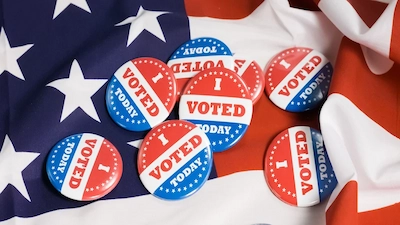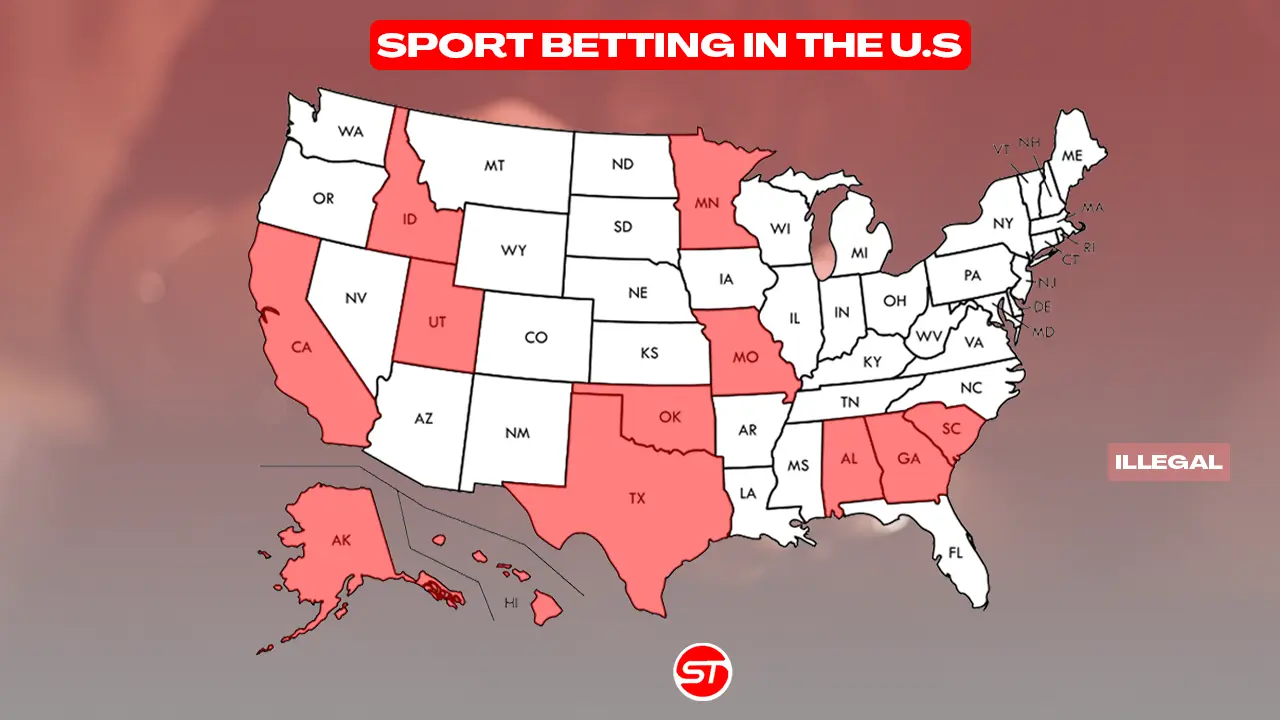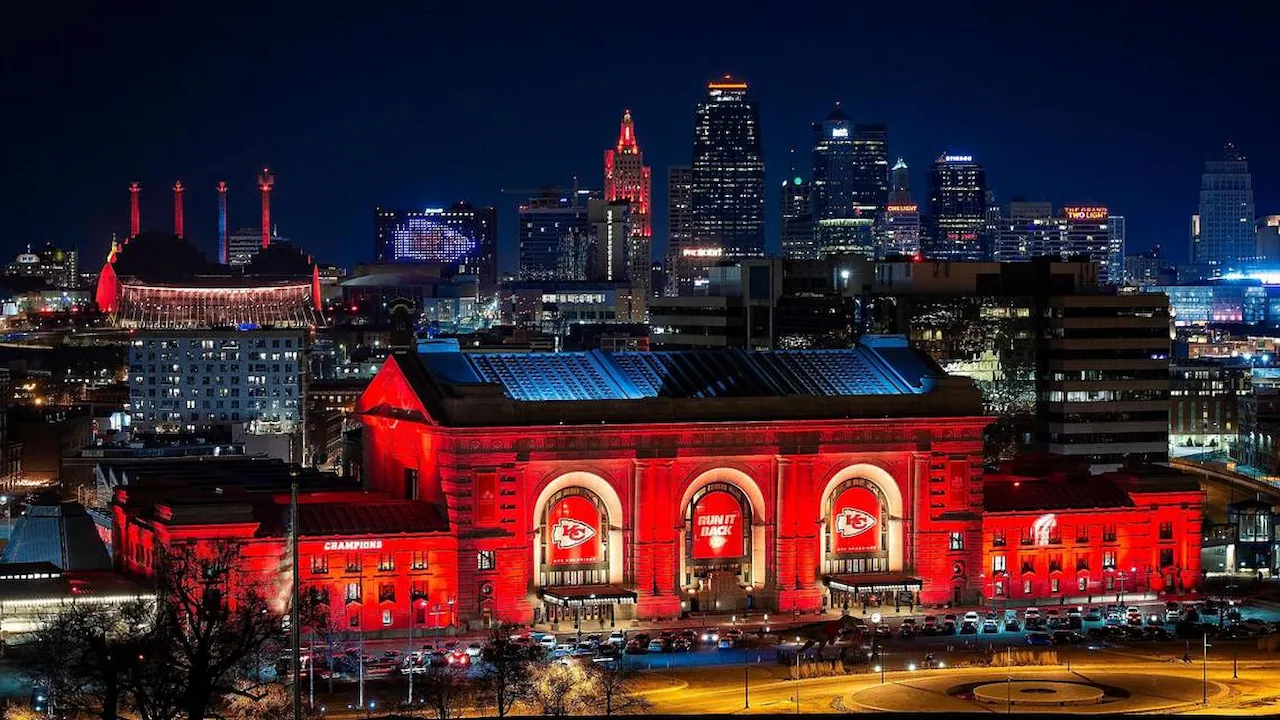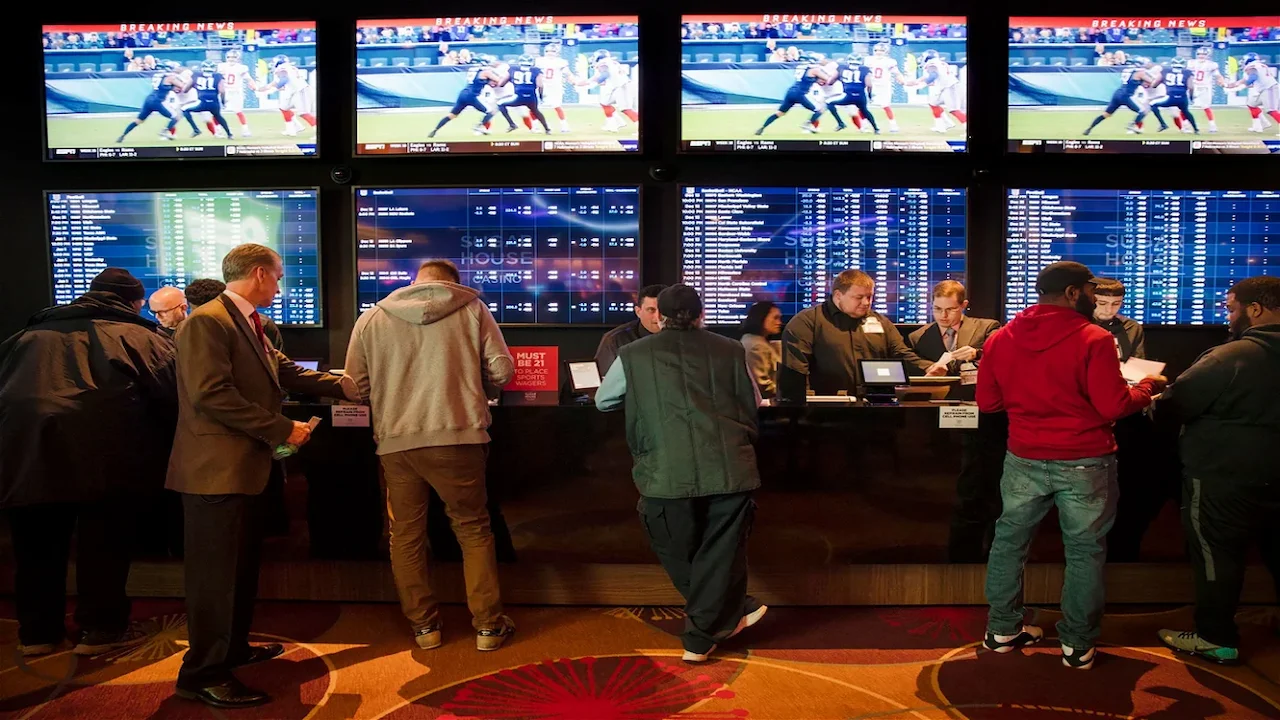Sports Betting Coming to Your State in November?
by Tyler Doty | by Tyler Doty

Sports Betting Legislation Changes

With 2024 being a presidential election year, one would think it would also be prime time for adding ballot initiatives to the list of choices in November. But in the case of sports gambling, there’s a notable lack of legalization pushes this year.
Part of that is because many states already have legalized sports betting since gaining the option in 2018. As of June 2024, the top sportsbooks in the US are operating in 38 states and the District of Columbia. Of the remaining 12, there aren’t many reasons for optimism. Here we will discuss the upcoming ballot initiatives and sports betting legislation changes coming this November
Show-Me Sports Betting
Only Missouri has a chance to legalize sports betting, as Winning for Missouri Education submitted 340,000 signatures to get sports betting on the ballot in the Show Me State in November. This initiative would create an amendment to the Missouri Constitution, legalizing both brick-and-mortar sports betting and mobile betting in the state.
However, the threshold for enshrining the amendment remains iffy. The Missouri legislature is concurrently debating whether to raise the requirements to amend the Missouri state constitution. Currently, the state only requires a simple majority of voters to approve the measure for it to pass. But the state is debating whether to add an additional requirement of a majority of the state’s eight congressional districts to approve the measure, which could complicate determining a winner on election night.
Who Supports the Missouri Initiative?

Winning for Missouri Education has the backing of all six of the state’s professional sports teams: the St. Louis Cardinals, St. Louis Blues, St. Louis City, Kansas City Royals, Kansas City Chiefs and Kansas City Current. Additionally, FanDuel and DraftKings have both financially backed the measure.
All would stand to benefit from this amendment’s passage. Each team would be entitled to partner with one sports betting company to offer mobile betting throughout the state. Additionally, the state’s riverboat casinos could partner with as many as three online operators.
Who Opposes the Missouri Initiative?
Ironically, some of the casinos themselves aren’t on board with this initiative. The main hold-up for their support is whether video lottery terminals (VLTs) would be legalized or not. The casinos believe that VLTs threaten their business because they’re available at gas stations and bars throughout Missouri and currently operate with little regulation.
However, Missouri state senator Denny Hoskins has filibustered any sports betting bills that don’t include VLTs. With Hoskins not on board and not enough votes otherwise, going through the legislature appears dead for the time being.
How Likely Is the Amendment to Pass?
It’s a murky picture. Missouri has become drastically more conservative since it voted to legalize riverboat gambling in 1992. The state has become reliably Republican since 2000, and polling on this issue has been spotty at best. A poll in February suggested that Missouri voters were favorable to legalizing sports betting, but only as far as professional sports are concerned.
When college sports were considered, less than half of all Missouri voters expressed support. That could sink the overall bill, as a poll in May suggested that 60% of voters were opposed to legalization. Given that 60% of Missouri voters supported legalization for pro sports in February, the truth probably lies somewhere in the middle.
60% of Missouri voters supported legalization for pro sports in February, the truth probably lies somewhere in the middle.
Further complicating matters is the potential requirement to win a majority of congressional districts, which could become Missouri law in August. If that occurs, it could be a major hurdle for legalization, because the makeup of Missouri would require at least one majority rural district to vote in favor of the amendment. The state’s map consists of two urban districts that cover St. Louis and Kansas City, plus one majority suburban district in western St. Louis.
But the district requirement becomes problematic in the center of the state, because the Third District and Fourth District have divided Boone County. Boone County is home to the University of Missouri’s flagship campus in Columbia, which would likely provide one of the most vote-rich areas in support of the amendment outside of the state’s two major cities. If this requirement passes, the division of Columbia could make it difficult for either district to vote yes.
What Would a Successful Amendment Look Like?
If the amendment passes, sports betting would likely come to Missouri in late 2025. Historically, it takes about nine months from legalization to launch for sports betting. A successful amendment would most likely see sportsbooks open at each Missouri sports team’s respective stadium, as well as at existing riverboat casinos.
Mobile betting would also become available, with the number of licenses to be determined. Six sportsbooks — DraftKings, FanDuel, BetMGM, Caesars, Fanatics and ESPN Bet — operate in neighbors Illinois, Iowa and Kansas, with BetRivers operational in both Illinois and Iowa. If the measure passes, Missouri’s lineup would probably look similar to its neighboring states.
The state would also need time to figure out how gambling is taxed and where the funding would go. The Missouri constitution requires existing gambling funds to go toward education, but increased funding there could free up existing education funds for other projects.
Where Do Other States Sit On Potential Legalization?

Out of the remaining states that could legalize sports betting, none are anywhere close to legalization, to say nothing of a launch date. Here’s a look at other potential markets for the future.
Alabama
The Yellowhammer State is one of the only states that doesn’t even have a lottery, let alone legalized gambling. Alabama voters rejected efforts to create a lottery in 1999, and the state has gone without any form of state-sponsored gambling ever since.
Alabama’s legislature attempted to change that with a bill that would have asked voters to legalize a lottery, sports betting, casino gambling and parimutuel wagering. However, the Alabama Senate proved a stiff roadblock. First, the Senate removed sports betting and non-tribal casino gambling from the final bill. It then failed to pass the bill, as the Senate rejected the bill by one vote.
Alabama governor Kay Ivey supports sports betting and could call a special legislative session, but declined to do so, citing the legislature’s disagreements among themselves.
California
The Golden State remains the proverbial pot of gold for sportsbooks. With 39 million people in the state, legalizing sports betting in California would mean lots of customers and revenue. But it’s not likely anytime soon. The state’s voters rejected sports betting in 2022 by a 70-30% margin, and attempts to go through the legislature have lacked the support of the state’s Native American tribes. Without tribal support, there’s no chance of sports betting becoming legal in California.
Georgia
In the Peach State, there’s good news and bad news. The good news is that most Georgia legislators are on board with sports betting, and so is Governor Brian Kemp. In the legislative session, the Georgia Senate approved a bill to legalize sports betting and casino gambling with 77% of senators voting in favor.
Georgia legislators are on board with sports betting, and so is Governor Brian Kemp
The problem is that legislators can’t agree on funding. The Georgia House stripped the Senate bill of funding for problem gamblers and statewide pre-kindergarten programs, which stalled out negotiations. The Georgia legislature has tried for four consecutive sessions to send a bill to Gov. Kemp and send it through to the voters, but it hasn’t yet succeeded. With neighbor North Carolina legalizing wagers, expect Georgia to try again in spring 2025.
Minnesota
The Land of 10,000 Lakes passed a bill through the Minnesota House, but questions over licenses for horse racing tracks caused the state’s Native American tribes to pull support. Like California, sports betting won’t go anywhere in Minnesota without tribal backing.
Oklahoma
Given Oklahoma’s long history of tribal casinos, this might be the most surprising entry. Sports betting in the Sooner State would have been legalized years ago if Gov. Kevin Stitt and the tribes could get on the same page. But the tribes continue to insist that their compact gives them exclusive control over all forms of betting in the state, and Stitt disagrees.
Stitt has gone as far as to create a plan to go around the tribes, which has led to firm pushback from tribal leaders. Unless that impasse gets resolved, nothing will happen in Oklahoma.
South Carolina
The Palmetto State could become one of the most permissive states in the country for sports betting if its most recent bill becomes law. Most states require bettors to be at least 21 years old, but South Carolina’s HB 3749 would have legalized sports betting for anyone 18 and over. With North Carolina launching sports betting in 2024, South Carolina will likely use its neighbor’s law to craft a bill in 2025.
Texas
As long as lieutenant governor Dan Patrick controls the Texas Senate, sports gambling in the Lone Star State is dead. Patrick outright refuses to take up any bill he can’t pass with only Republican support, which has fully blocked sports betting despite the support of the Texas House and the state’s sports teams. Making matters worse, the Texas legislature only meets every two years, so if it fails in 2025, it’s dead until at least 2027.



